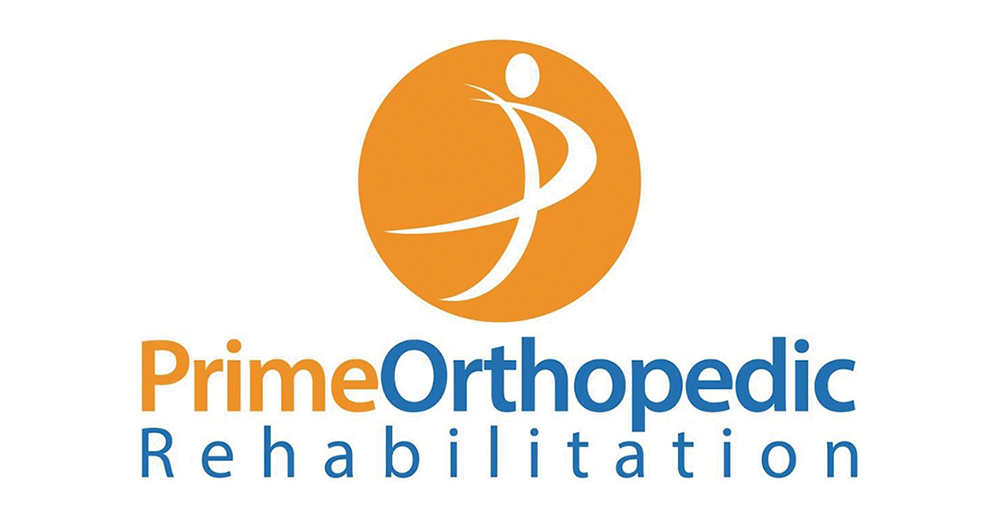
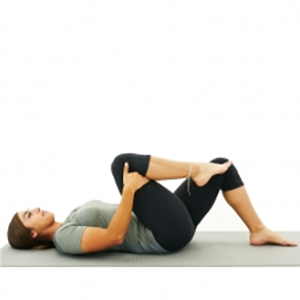 I get asked this question almost daily: “Why do my neck, back and legs feel stiff when I wake up in the morning?” Simply put, while a person sleeps there is decreased activity and less synovial fluid that adds lubrication in the joints, causing them to dry out and feel stiff and sore. Arthritis in the back, hips, knees, ankles and feet can also lead to stiff and painful movements upon waking.
I get asked this question almost daily: “Why do my neck, back and legs feel stiff when I wake up in the morning?” Simply put, while a person sleeps there is decreased activity and less synovial fluid that adds lubrication in the joints, causing them to dry out and feel stiff and sore. Arthritis in the back, hips, knees, ankles and feet can also lead to stiff and painful movements upon waking.
What is the ideal position to sleep in?
Sleeping in supported positions may help prevent morning stiffness and pain. Lying on your back with one pillow, preferably with a Mckenzie cervical roll (https://mckenziemethod.com/product/the-original-mckenzie-neck-roll/) to support the neck and one pillow under the knees, is a good position for someone with neck or back pain. While your shoulders should not be on your pillow, your neck should be supported well by your pillow, whether you are sleeping on your back or on your side. If you are a side sleeper, place a pillow lengthwise between your thighs and knees to prevent collapse of your hips and knees, creating better alignment for your back.
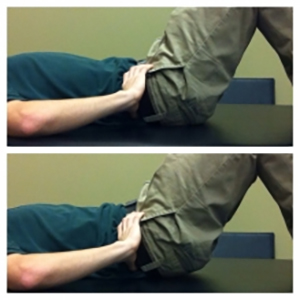 What can be done for morning joint stiffness?
What can be done for morning joint stiffness?
Performing daily stretches in bed before getting up for the day can be very helpful for morning stiffness.
Ankle Circles: One at a time, bring your knee to your chest and move your big toe in a circular motion as if you were making imaginary circles. Repeat 10 times and then switch directions for another 10 times.
Single Knee to Chest Stretch: While lying on your back, raise your leg up and hold your thigh under your knee while gently pulling it towards your chest for a gentle stretch. Lower your leg down and repeat 10 times on each side.
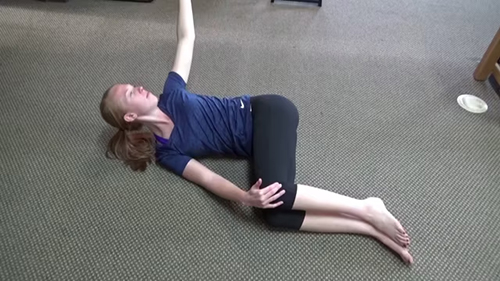 Pelvic Tilt (for lower back stiffness): Lying on your back with your knees bent, gently flatten your back and tighten your abdominal muscles, and roll your pelvis up slightly. Slowly return to the starting position and repeat for 10 times.
Pelvic Tilt (for lower back stiffness): Lying on your back with your knees bent, gently flatten your back and tighten your abdominal muscles, and roll your pelvis up slightly. Slowly return to the starting position and repeat for 10 times.
Open Book Exercise (for upper back tightness and trunk stiffness): Lie on either side. Bring your knees toward the chest so the hips are flexed to about 90 degrees. Take the hand closest to the bed or floor and hold legs together so they do not move throughout the exercise. With the top arm, reach behind you. Then, bring the arm forward and reach in front of you. Repeat movement multiple times, then switch sides.
Prone Press Up (for disc pain): Lay on your stomach. Place your hands on the bed under your shoulders. Press up by straightening the arms. Keep the back and glutes relaxed during the entire exercise. Repeat 10 times.
What can physical therapy do for morning stiffness?
As we age, most people feel some sort of joint and muscle stiffness in the morning from time to time, but if you constantly find yourself waking up with achiness and stiffness, it is time to seek the help of physical therapy. At Prime Orthopedic Rehabilitation, our trained physical therapists will evaluate and treat you based on your unique situation and our findings.
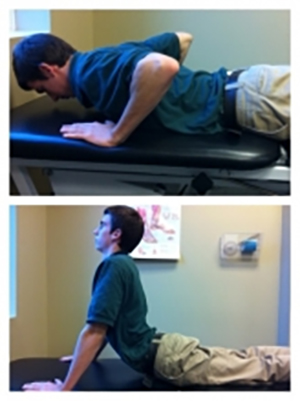 We will evaluate your specific signs and symptoms and perform specialized tests used to evaluate your situation. Using manual techniques such as soft-tissue mobilization and myofascial release, as well as individually tailored special exercises and stretches, the physical therapist will decrease the soft-tissue restrictions and improve movement patterns to decrease the pain and improve mobility on the restricted joints. The physical therapist will also teach and educate each patient with appropriate exercises to perform regularly in the comfort of your own home to help decrease pain on an ongoing basis.
We will evaluate your specific signs and symptoms and perform specialized tests used to evaluate your situation. Using manual techniques such as soft-tissue mobilization and myofascial release, as well as individually tailored special exercises and stretches, the physical therapist will decrease the soft-tissue restrictions and improve movement patterns to decrease the pain and improve mobility on the restricted joints. The physical therapist will also teach and educate each patient with appropriate exercises to perform regularly in the comfort of your own home to help decrease pain on an ongoing basis.
If you are experiencing morning aches and pains, stiffness or are recovering from an injury and would like help in waking up with less discomfort, please reach out to Prime Orthopedic Rehabilitation at (201) 503-7173 to schedule an appointment with one of our therapists.
Jessica Lowy, DPT, CMTPT, DN, Mckenzie A-D, Advanced Schroth Therapist; and Michal Porath, MPT, Mckenzie A-D, Advanced Schroth Therapist; are owners of Prime Orthopedic Rehabilitation in Tenafly, New Jersey. They treat necks and backs in their clinic, in addition to general orthopedic and post-surgical patients. Call (201) 503-7173 for an appointment.








